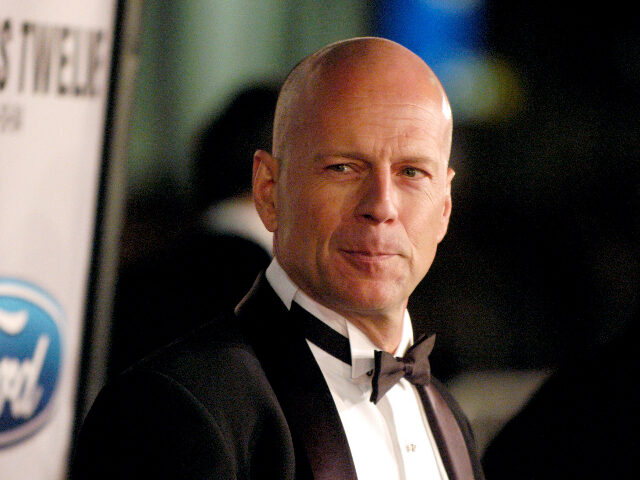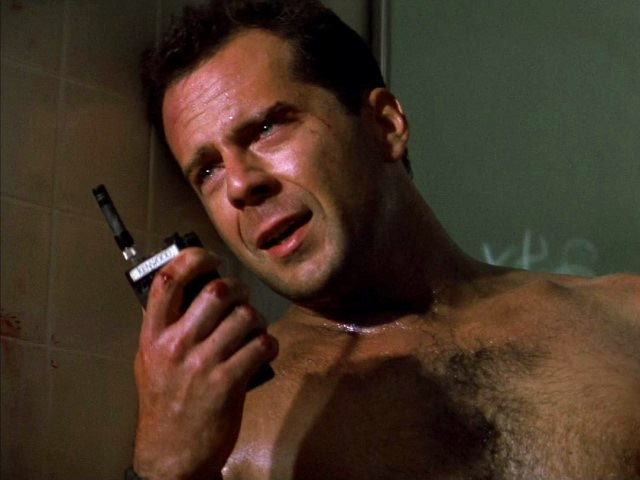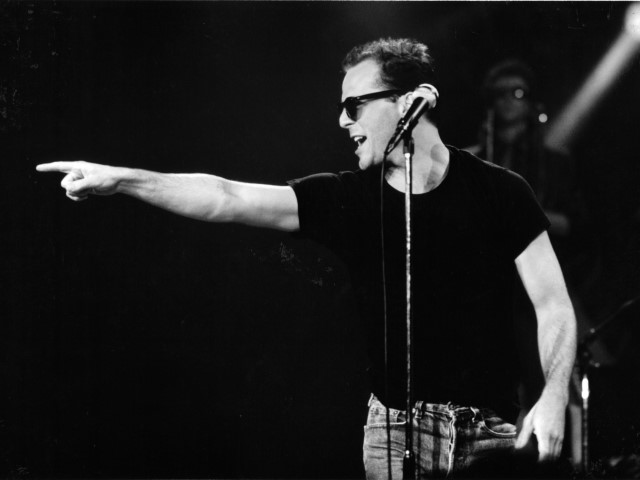Within five minutes, I knew Bruce Willis would not only be a star but a sure-thing, can’t-lose superstar. It was March 3, 1985. I was an 18-year-old ne’er-do-well living in a South Florida rooming house. That was the night Moonlighting premiered, and within five minutes, anyone could see Bruce Willis had it all, the whole megillah.
Bruce Willis’s David Addison was hilarious, charming, witty, bold, chivalrous, street smart, and most importantly, he could laugh at himself. David Addison was amazing. Everyone wanted to be David Addison. He was cool. He was his own man. And for the next decade—along with other cool, self-deprecating personalities like Don Johnson’s Sonny Crockett—Bruce Willis would define American masculinity. This made the 80s and 90s a great time to be a man…and a woman.
Ask Demi Moore about that. Bruce Willis won Demi Moore when she was at peak Demi Moore, when she was the hottest thing that ever walked the planet. And he won her permanently. They divorced, but she’s still around, helping him through his third act. That makes her a beauty in more ways than one.
While Moonlighting was still on the air, and to the surprise of no one, the movies came calling, and what followed were a couple of stinkers from a late-era Blake Edwards: Blind Date (1987) and Sunset (1988). I was already a Bruce Willis fan, so I saw both. They were awful. Nevertheless, it would take more than two duds to dull my certainty Bruce Willis would become THE movie star in an era full of movie stars… And then along came Die Hard (1988).
Die Hard was the movie star vehicle of all movie star vehicles, a rocket ship fueled and fine-tuned to launch Willis where he belonged—into the eternal heavens with the other immortals. It took 132 minutes to meld the perfect screen persona to the exact right actor. Die Hard was Bruce’s Stagecoach, his Pretty Woman, his 48 Hrs… Instant superstardom.
Bruce Willis had a persona that couldn’t lose: The put-upon everyman, the glorious wise-ass who despised and distrusted authority and still got the job done; the irreverent, reluctant, not-this-shit-again hero who didn’t take himself seriously, who was always behind the eight-ball personally and professionally, who was achingly fallible and ready (even if he didn’t know it) for redemption.
He was funny, cool, and all man, and although you and I could never clear a skyscraper of terrorists or stop a killer meteor, Bruce Willis never stopped being a man we could relate to.
Sure, within that well-honed persona, he shifted a bit. Sometimes he shifted a whole lot. There was the vicious bisexual assassin in The Jackal (1997) and the wimp in Death Becomes Her (1992). Bruce is an actor. He wanted to stretch. Hell, John Wayne played Genghis Khan. We get it.
But Bruce always came home. Which isn’t to say he didn’t make mistakes.
Hudson Hawk (1991)… That was a mistake and an early one. The movie’s earned some respect since, but at the time, Bruce nearly screwed the pooch. Instead of being cool, he was showing off how cool he was…which made him uncool. Coming right off of two high-profile flops—Bonfire of the Vanities (1990) and the thriller (where he played a villain opposite wife Demi) Mortal Thoughts (1991)—Hudson Hawk could have “Stroker Ace’d” one of the biggest stars in the world. Luckily for Bruce, and for us, and for America, the fantastic Last Boy Scout (1991), the underrated Striking Distance (1993), and a flat-out masterpiece called Pulp Fiction (1994) were incoming.
Like most movie stars, Bruce’s career dipped and peaked, peaked and dipped… First, there was the valley of North (1994) and Color of Night (1994), followed by the mountain of Die Hard with a Vengeance (1995) and 12 Monkeys (1995). Then, there was the valley of Last Man Standing (1996) and Mercury Rising (1998), followed by the stratosphere of Armageddon (1998) and The Sixth Sense (1999).
Regardless, at this point, the mission was complete. Bruce Willis entered the 21st century 45 years old and assured of big-screen immortality. The canon, the goodwill, and the iconic personality were now part of America’s cultural firmament—an accomplishment only those who possess the magic to touch the sun ever achieve.
Thankfully, there was still good stuff ahead. Willis opened the new century with the best performance of his career and one of the most affecting movie star performances ever in Unbreakable (2000). Then came Bandits (2001), which I dare anyone not to love, followed by Sin City (2005), Live Free or Die Hard (2007), Red (2010), and Looper (2012).
When I remember Bruce Willis, it will be in two ways. First, there was The Return of Bruno, Bruce’s Motown album. Remember Bruce on stage wearing sunglasses and wailing away on that harmonica? I do. Even at the time, what I saw was a man reveling in his stardom. He’d arrived, and now he could do anything, so he embraced the moment before it inevitably faded to make a dream come true: to be Sam Cooke for a couple of hours. Compare Bruce’s approach to fame and stardom to the whiny, “traumatized,” crybaby “stars” all over Twitter today.
Then there was the Bruce Willis who said goodbye. We didn’t know it then, but all those direct-to-video movies, all that junk Bruce Willis probably wouldn’t even watch, star a disabled man pushing and sacrificing himself to do what men do: protecting and providing for his family’s future. There’s nothing cooler than that.
Over four decades, Bruce Willis delivered, and now I regret taking him for granted. Honestly, I thought he’d be around forever. Why wouldn’t I? After all, had you told me on March 3, 1985, that the Willis Era would march on for nearly 40 years, it would’ve sounded like forever. You see, when you’re 18, even the year it will take to turn 19 feels like forever. But then, one morning, you wake up, and you’re two weeks from turning 57; Bruce Willis is three weeks from turning 68, and thanks to the cruel indifference of the universe, it’s all over.
Up on that screen, Bruce Willis was as cool as Steve McQueen, as glibly funny as Chevy Chase, as capable as John Wayne, and as devilishly charming as Errol Flynn. But there will only ever be one Bruce Willis, and I’m gonna miss him.
I surely am.
Follow John Nolte on Twitter @NolteNC. Follow his Facebook Page here.



COMMENTS
Please let us know if you're having issues with commenting.